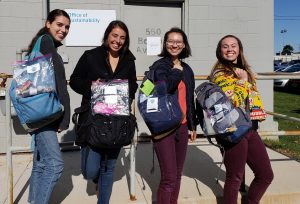Zero Waste Manager, Sustainability, Facilities Management & Planning, Sustainability
Job Description
Be a part of the solution. Help Boston University achieve its commitment to carbon neutrality by 2040. sustainability@BU, Boston University’s award-winning sustainability office is building capacity to support the Climate Action Plan recently approved by the Board of Trustees. This is an unparalleled opportunity to build a Zero Waste program from the ground up. You will report to the Sustainability Director, and collaborate closely with the Associate Vice President for University Sustainability and the sustainability team, Campus Planning and Operations, Dining Services, and many other departments across the University. In support of the University’s Climate Action Plan, this position will be responsible for leading the design, development, and implementation of a Zero Waste program for the University. The successful candidate will be a strong collaborator with considerable knowledge of waste minimization and supply chain. This candidate will have experience with waste management processes, regulations, methods and procedures and be passionate about waste minimization and diversion.
Visit us to learn more at https://www.bu.edu/sustainability/ and http://www.bu.edu/climateactionplan/
If you’re a data-driven, tenacious collaborator and passionate about waste reduction, this position is for you!
Required Skills
This position requires high proficiency with Microsoft Office and advanced knowledge of Excel. This candidate will have the ability to collaborate and function effectively as part of a dynamic team and across departments. This position requires three to five years of related experience. Qualifications: A TRUE Advisor, trained on and experienced in the TRUE Zero Waste Rating System preferred. A strong understanding of sustainability, specifically waste and waste diversion issues. Exceptional problem-solving and organizational skills. Exceptional communications skills, especially written and verbal. A self-starter and collaborator who can get results.
Must include cover letter.
We are an equal opportunity employer and all qualified applicants will receive consideration for employment without regard to race, color, religion, sex, sexual orientation, gender identity, national origin, disability status, protected veteran status, or any other characteristic protected by law. We are a VEVRAA Federal Contractor.
| Application Deadline: rolling |
| Apply online here. Application must include a resume and cover letter. |


Find Us On Social Media!